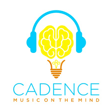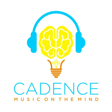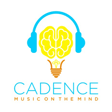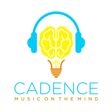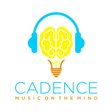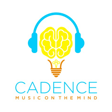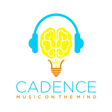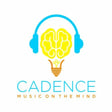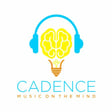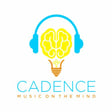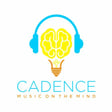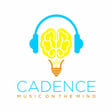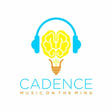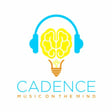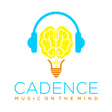Become a Creator today!Start creating today - Share your story with the world!
Start for free
00:00:00
00:00:01

S02 Episode 02: Drug-Free Dopamine Boost: Music and Parkinson's Disease
In this episode, we tell the story of a dance class designed for people who are losing the ability to move voluntarily. Mike Gabel, who was diagnosed with Parkinson's disease four years ago, explains why he never misses a class.
Transcript
Adjusting to Life with Parkinson's
00:00:07
Speaker
Well, I mean, that was the hardest thing to really begin to adjust to. I mean, it's very weird. It's like a Twilight Zone. It's kind of like you're watching someone else's life go by because this doesn't make any sense to you. Your brain's saying, move your leg and it just, it won't go. And then if you kind of take a breath or shift your weight or wait a second, sometimes it'll work.
00:00:28
Speaker
The frustrating part of it is the unpredictability of it, because even if I'm taking my medication, I'm taking cinnamet, and usually within a space of a few hours after taking it, I can move relatively well, but sometimes I don't.
Music's Impact on Parkinson's
00:00:43
Speaker
Welcome back to Cadence, the podcast where we explore what music can tell us about the mind. I'm Andrei Viscontis. This season, we're telling the stories of people whose lives have been immeasurably improved by music, and we're asking the question, can music be medicine? In this episode, we profile Mike Gable, who was diagnosed with Parkinson's disease four years ago.
00:01:13
Speaker
you
00:01:17
Speaker
Well, about, I think, the early spring of 2013, we had friends visiting from the East Coast and we were hiking in Big Sur. And I couldn't keep up with my wife and our friends or couple who were visiting from Maine. And it seemed really odd to me and it seemed odd to my wife. And she had been noticing previously that things didn't look right with me. She said, you seem to be dragging your left side.
00:01:43
Speaker
I said, I'm just a bit depressed, I'm just a bit tired and so forth. I was working as a head of a small consulting company, which I've had since the 80s. But when we got back home from our trip, we immediately went to Kaiser and went to a neurologist and got checked out pretty quickly. His diagnosis was immediate that I had Parkinson's.
00:02:18
Speaker
And that was May of 2013. And then the next month I got an appointment with a really great doctor at UCSF in San Francisco. And he confirmed the diagnosis and spent some more time with me going through the prognosis and so forth. So it was quite a shock, of course. And my daughter was just graduating high school and it was sort of a difficult time to have to break the news to her, but we managed to do that right after her graduation party.
Understanding Parkinson's Disease
00:02:56
Speaker
Parkinson's disease is a devastating diagnosis, particularly when it hits early in midlife, as it progresses faster for many early onset patients. There's no cure, though stem cell treatments have shown some promise in the past. It begins with the death of cells in a part of the brain called the substantia nigra, or black substance, which is where cells that make dopamine, a neurotransmitter we hear about a lot, reside.
00:03:22
Speaker
As these dopaminergic cells die, less and less dopamine is available for use in the brain, and particularly in the basal ganglia, which is a set of structures deep in the middle of the brain that are important for learning, selecting, and executing complex motor skills. By the time a patient shows symptoms that a neurologist can recognize, most of the substantia nigra cells are already gone.
00:03:47
Speaker
People often think of Parkinson's as a shaking disease, referring to the tremors that often accompany it. But the primary symptoms are not tremors. In fact, Mike Gable's hands are as steady as can be. I think of the presenting symptoms as a problem with voluntary movement. Patients have trouble getting out of chairs or walking without freezing. They show what we call the Parkinsonian shuffle or initiating other movements.
Therapeutic Role of Music
00:04:13
Speaker
So what does this disease have to do with music? Well, dopamine is a neurochemical whose levels are affected by music, and the basal ganglia are important for many aspects of music making and even listening. But perhaps most astonishingly, some patients can move to music in ways that are very difficult for them once the music stops.
00:04:33
Speaker
Here's Jessica Grohn at the University of Western Ontario who studies music cognition and who's a world's expert on how we don't see the rhythm, we feel the beat. Patients with Parkinson's disease present an interesting case for us. So they have a degenerative condition that causes the deaths of certain type of neurons in the brain, neurons that contain dopamine. And these neurons feed into a key motor structure as well as musical structure called the basal ganglia.
00:05:02
Speaker
So their basal ganglia function is impaired and some of it can be mitigated with medication but often not fully. Now one interesting thing about beat perception and feeling that pulse is that it actually varies a huge amount across even just the healthy population.
00:05:20
Speaker
And we see the same variability in Parkinson's patients. Some are better and some are worse. But overall, they don't seem to be nearly as able to sense the pulse in the rhythm as people without this condition are. What we found is that, again, there are some patients who seem to be very much within the normal range, but as a group, their performance tends to be worse overall.
00:05:44
Speaker
So because of dysfunction in the basal ganglia, people with Parkinson's disease tend to have difficulty keeping pace with the pulse and music. But that doesn't seem to be a problem for Mike.
00:05:54
Speaker
Well, historically, I've always liked the ability of the guitar to play the chords behind songs that I like. I've got a good ear and I listen to... I can easily recreate the chords of any song that I hear, so it's the fun part of the puzzle of getting those chords right. But if it's a song I like, I can croak at whatever voice I want to use and sing the lead and play the guitar behind it.
00:06:20
Speaker
By recreating the music for myself, it sort of gives me a freedom. I mean, listening to the music is absolutely wonderful. Or listening to a great cover version of an original song, but somehow recreating the song myself, there's a connection to me that I can't explain. I don't perform for other people, generally. This is just playing by myself to kind of connect to some parts of my own experience.
00:06:42
Speaker
preference but with Parkinson's now it's it's something because I'm many doors have closed with Parkinson's the fact that I can keep this door open playing really is a great emotional lift for me that I can still this little piece of myself that I started when I was 15 when I first started learning to play guitar there's a little piece of the past and the continuity with that part of myself that so it was part of a whole life that preceded Parkinson's so that's kind of
00:07:09
Speaker
Yeah, it's really interesting because one of the things we've been finding is that there are a couple of periods in our lives when music plays a really important role, and one period is when we're coming into our own as adults, through puberty and just beyond, when there's this drive to separate ourselves from our family. And some people say that the teenage brain is designed distinctly to cause fights.
00:07:34
Speaker
send you away from the things that are familiar so that you can go off and build your own family. And so the music that we listen to during that time in our lives can often be incredibly moving to us decades later because it's how we bonded with a new group outside of our family. It's sort of like you're reborn as an adult.
00:07:55
Speaker
And that's maybe one of the reasons why when we are at the end of life or we have a neurodegenerative disease that music can really bring us out of who we are in the moment and make us feel as if we are again in that wonderful era of our lives.
00:08:13
Speaker
Even if we know that music isn't very good, which I think is really interesting, you know, that we can, like, we can objectively say, you know, that's kind of crappy music, but boy, do I want to listen to it. Is that part of it? Do you have that experience where when you get enmeshed in the music, it makes you feel like a young 20 something again? Absolutely. Yeah. I mean, I think
00:08:40
Speaker
You know, there's a reason that the animals, there's a group name of a group called Eric Burton and the animals that preceded your time. They had a song called We Gotta Get Out of This Place, you know. And that was a teenage song of, you know, getting out of, in his case, certain industrial part of Britain, ostensibly, but really metaphorically, getting out of the home you grew up in to separate and have your own life. So that was a powerful song, yeah. We gotta get out of this place.
00:09:08
Speaker
And actually, with Parkinson's, we've got to get out of this place, right? You have to live with it 24-7, but part of you is not in the mood for it some days, and you want to get out of this place. So you can sing about it.
00:09:23
Speaker
So I'm never really in any pain, per se. It's just sort of the awkwardness of having to move. So since I'm not experiencing fortunately any real pain, it's just frustration
Humor and Creativity as Coping Mechanisms
00:09:33
Speaker
of not being able to move. When I can still play, it's like I'm out of this place. I'm out of that place of frustration.
00:09:49
Speaker
Depression is very common in patients with Parkinson's disease, and we don't really know if the disease itself causes depression, given the changes in the levels of dopamine, or if the patient begins to feel depressed because of the symptoms they are experiencing, like the fact that they can't get their limbs to do what they want them to do anymore.
00:10:07
Speaker
Well, there's the joke, the black humor in Parkinson's circle is that, well, Parkinson's is not a death sentence, but it's a life sentence. And we make jokes like, how are you feeling today? What's shaking sort of things. I mean, if we can't joke about it, we're really in deep, deep trouble. So you just got to kind of keep your spirits up however you can.
00:10:30
Speaker
I mean, basically it's what carries me a lot of times through the day or through something difficult, which is why they play music at special events and funerals and stuff like that to help people emotionally. So it all makes sense that way. Again, I guess the only thing I would say is to emphasize that there's no formula. You have to just find your own path to tap into the things that make you feel better and help you. And that's the mission.
00:10:57
Speaker
But Mike doesn't just play and listen to popular songs from his youth. He and his friends also rewrite songs to fit their own experiences, like this song with a melody by John Fogerty and lyrics written by a friend of his from his dance class.
00:11:13
Speaker
Early in the morning, just about dosage time Deep inside my body, the medicine starts to unwind Beginning to feel shaky, tremors start to bet Guess it's pretty obvious, it's time for cinnamon
00:11:36
Speaker
Music, exercise, and a sense of humor. One of my neurologists said, that's actual medicine. People remember to take their medicine. You take your medicine every four hours, take your cinnamon. People usually manage to do that, but they don't realize that the non-medicinal
00:11:54
Speaker
things are just as important as medicine. You should be as diligent about doing those things or taking those things as you would with actual pharmacology. And I think you find your own kind of music, you find your own kind of exercise, whether it's dance, whether it's boxing, whether it's cycling, whether it's walking, whether it's whatever it is, and you find your support group or you find people who can be helpful.
00:12:29
Speaker
Given how big a role music plays in Mike's treatment profile, I wondered what Jessica had found from studying patients with Parkinson's disease. So this is a fun and interesting set of experiments we're doing and other people around the world are working on.
00:12:44
Speaker
Physiotherapists have known for some time that some patients respond incredibly strongly to a steady beat either played by a metronome or to music when they are trying to walk. So one issue of Parkinson's disease is that initiation of movements
00:13:00
Speaker
which for most of us is trivial. I want to get up and walk across the room to make a cup of tea, no problem. I send the motor commands and my body obeys. But for patients, this can be a real problem. The initiation doesn't happen when they want it to and they experience something called freezing.
00:13:16
Speaker
One thing that rhythm and steady senses of pulse seems to do is unlock these patients and mitigate that freezing behavior so that they can carry on moving as normal. So we've been looking at this a lot in our own lab just trying to characterize who benefits from these types of therapies.
00:13:35
Speaker
And one thing that we found is that it really depends on their ability to sense that pulse. So for patients who have a very good sense of the beat still, you can tell them to walk to music and it seems to help. And what we often do in this case is instruct them to try to synchronize to the beat, move their footsteps in time with the beat.
00:13:54
Speaker
But for patients who don't have a good sense of the beat, they often sometimes still benefit from this music or from a steady tone, but only if we tell them to not worry about synchronizing. So it seems to be that if we tell them to synchronize, that that actually produces some sort of difficult, dual task of trying to do two things at once, and one of them they're not very good at, which is feeling and synchronizing to the beat.
00:14:18
Speaker
But if we remove that requirement, then the music still seems to help them even though they're not explicitly trying to synchronize to it.
00:14:25
Speaker
Now one of the few medications that actually seems to stave off symptom progression for a while and can actually make patients better for a while is called L-DOPA. It's an old medication and essentially what it does is it gives the brain more of the precursor to dopamine, so the building blocks from which dopamine is built. Dopamine itself can't get across the blood-brain barrier, but L-DOPA can. So patients often take L-DOPA in the first stages of the disease and it seems to help with a lot of their symptoms.
00:14:53
Speaker
I wondered whether this medication would also alleviate the changes that they have in music processing. We were really interested in building out some previous work where we had asked patients to try to feel the beat and discriminate changes in a rhythm. So you hear a rhythm and you hear another one, you'd have to see if they were same or different, that showed that Parkinson's patients had a harder time with this task.
00:15:15
Speaker
But what was interesting is they were only worse when they were given rhythms that had a clear beat. When we gave them very irregular sounding rhythms that people don't feel the beat in, they actually weren't much worse than people who had no Parkinson's disease. So that suggested to us that the problems that they have are really specific to feeling the beat. And in this most recent study, we wanted to look and see
00:15:38
Speaker
how their medication was interacting with that. And we found that it does indeed interact with it. It seems to improve their ability to discriminate changes in rhythms without a beat, but doesn't really seem to have the same effect on their ability to discriminate rhythms that do have a beat. So one thing that this suggests is that feeling rhythms that have a beat and feeling rhythms that are irregular might rely on slightly different systems in the brain.
00:16:03
Speaker
So how do these rhythmic interventions for patients with Parkinson's disease work? Do they increase dopamine levels? Do they make the basal ganglia more receptive to rhythm or heighten its ability to process rhythm? How is it that these therapies actually work?
00:16:18
Speaker
And this is a completely open question. So one thing about these music and rhythm therapies for Parkinson's is nobody actually knows how they work. So the number of ideas and one idea related to dopamine is that somehow moving to music is rewarding. There must be a reason we produce this behavior.
00:16:38
Speaker
And we know that the reward system really relies on dopamine as one of the major neurotransmitters. So it could be that in Parkinson's, this reward system is really helping kick up levels of dopamine and that improves that walking. Another possibility is that it's not dopamine related specifically in terms of reward, but that other systems in the brain that are timing related systems, some might be more reliant on dopamine than others. And the ones that are more reliant might be the ones that are being mitigated by these rhythm interventions.
00:17:07
Speaker
Despite the fact that Parkinson's disease seems to make it more difficult for patients to perceive rhythm, Mike told us that one of the best experiences that he had early in his diagnosis was a dance class.
Dance and Community Support
00:17:20
Speaker
Very quickly, I did find out through various means of a dance class in Berkeley that I started attending in August 2013. And immediately, it was a real transformative experience to give me a kind of sense of solidarity and hope that I hadn't had until then.
00:17:37
Speaker
Tell me about that first day. I mean, was it something weird for you to do to go to a dance class or was dance something that you had been doing during the rest of your life? And would you have signed up for a dance class even if you didn't have Parkinson's disease? Is that something that you would have done? No, not at all. I mean, I used to dance sort of 60s freestyle to rock and roll years ago to rock and roll. But no, I would have never gone to a dance class. I didn't see myself as much of a dancer.
00:18:04
Speaker
But all indications were that dance was a really great thing to try to do with Parkinson's, and it was going to help me. My wife, who's a retired psychiatric social worker for 30 years, privately she was worried in advance without telling me that she was afraid if I saw these people with Parkinson's in various stages of the illness, it would get more depressed. But I had the exact opposite reaction. When I got to the class, here were my people.
00:18:27
Speaker
you know, tremoring, walking with difficulty, soft voices. There are a whole bunch of Parkinson's symptoms that you recognize once you have the illness. And it was a huge relief to be like in a safe place where everybody had the same problem. And it was a great, incredible instant empathy and solidarity and kindness in that class that really came through very quickly. So that was my initial experience with it.
00:18:53
Speaker
The dance class seems to have such a fundamental role in his treatment. So I wanted to talk to his dance instructor, Susan Weber. She teaches the dance class that has become such an important part of Mike's week. I'm Susan Weber, and I'm the director of the Dance for PD program at Berkeley Ballet Theatre.
00:19:11
Speaker
When the program began in Brooklyn in 2001, I was aware of it at that point. And a couple of my dear friends who are dancers, or at the time were dancers in the company, David Leventhal and John Hagenbotham, they were two of the three founding teachers of this program. So I knew about it from the get-go. And I was kind of sensitized because my dad had Parkinson's disease. And the origin story is pretty fabulous, actually.
00:19:40
Speaker
was new. They built a beautiful dance center in Brooklyn and Mark has an executive director who is brilliant and her name is Nancy Yumenoff and one of the things that Nancy did when they were about to open the building was reach out to all kinds of community groups in Brooklyn to say we're going to have this great space
00:20:01
Speaker
We'd like to connect with you, and if any of you people and organizations can think of a way that our building can be of service, please let me know. And Ole Westheimer is a woman who was the director, I think, I'm not sure that was exactly her title, of the Brooklyn Parkinson Group.
00:20:22
Speaker
called up and said, you know, I work with people with Parkinson's and her husband was a neurologist or is a neurologist. So she knew a lot. And she said, I don't know why I have this feeling, but I think dancing would be a good thing for them.
00:20:37
Speaker
And Nancy said, great, we'll start on Wednesday. And since that day, there have been classes. And so the following year, the very first outside Brooklyn classes began simultaneously in both Berkeley and Oakland. And since that 2008 fall, they've been going continuously
00:21:04
Speaker
What's great about the class, there are lots of things that are great about it, but the dance itself is designed specifically with Parkinson's in mind. So there's a sort of fluidity and movement and coordination and various fun exercises and fun things to do that we all do together.
00:21:22
Speaker
But it's also done with music, with live music by a pianist who's an accompanist. And having live music makes it a real dance class, not a rehabilitation class or a quote exercise class. It's really, it's about the music helping us move and express ourselves through the movement. So it's really special that way.
00:22:01
Speaker
So there are people now all over the world teaching and teachers bring the backgrounds that they hold with them. And so some classes are kind of based on ballroom dance or ballet or modern or creative movement.
00:22:20
Speaker
or tap or flamenco and there are just a lot of different ways that it can go but the basic structure that they came up with in the beginning I think is pretty consistent actually. I don't think there's been a lot of movement in it. That being said, in every class there is a lot of experimentation and over the years we do as teachers learn from our mistakes.
00:22:44
Speaker
Susan begins the class. There are often one or two new people in the class, so she'll go over the ground rules, which is your first, most important job is to have fun and not to feel free to not do something that doesn't feel comfortable or modify it so it makes it comfortable for you. So if you can sit, only sit, you can do these things sitting. If you can stand, you can do them standing.
00:23:07
Speaker
So in general, she kind of sets the tone and we all sit in a big circle and chairs to start. So we start with sort of warm-ups. Basically we're following her, mirroring her. She usually basically will talk us through how to do something as they're doing it. And Susan happens to be a really, she's a master teacher, a master dance teacher, so she's been doing this for many years, so she's really good at this.
00:23:29
Speaker
But we have other wonderful teachers, too. Basically, people just follow along visually, primarily, watching what's being done. And actually, mirroring is an important part of the Parkinson's work, to be able to move your bodies in ways that you're not normally moving them, to see if you can make connections internally in their neurons and so forth.
00:23:51
Speaker
perhaps move around some of the blocks you might have. So people who have trouble with certain kind of movements because of the Parkinson's can sometimes find ways to get around those movements or move through those movements in ways that they couldn't do if they're normally sitting quietly by themselves or in some other setting. So it's getting people to do things they don't normally do, which I'm sure is making a big improvement in terms of making neural connections and so forth.
00:24:25
Speaker
Their appearance changes. The way people come into the room, typically before, and it's different for each person, but it will be a little more labored, a little less fluid and
00:24:42
Speaker
just imagistically a little gray. And then after an hour and 15 minute class, they're walking with more security and confidence, their cheeks are pink, they're smiling, and everything seems easier, lighter.
00:25:05
Speaker
I wondered whether the patients can use what they've learned in dance class to help them with some of their symptoms and other situations. So, for example, if one of your problems is getting up out of a chair, is there a way that you can think about the moves that you've learned in dance class in order to get out of a chair, say, when you're in a doctor's waiting room?
00:25:23
Speaker
I have seen people who may be frozen, freezing is one of the symptoms where people really have trouble beginning to move at all. They can also have the opposite problem of having a hard time stopping or particular movements can be difficult and sometimes those various difficulties actually go away with the addition of music and or choreography.
00:25:51
Speaker
My latest neurologist who I'm seeing has a mantra called arm swing big step and he wants us to vocalize literally arm swing big step when you're walking at least at least the beginning of your walk so you find your own rhythm natural pace but then what I've done is I've sort of translated that into
00:26:09
Speaker
whatever song pops into my head, which has a rhythm or a beat that roughly matches the meter of my walking at that time. I have my own inner iPod basically in which I kind of do that. It's sort of like the dance class because that's really what the pianists do. The teacher sets a certain beat text to demonstrate the movement.
00:26:32
Speaker
at a certain rhythm, and then the pianist picks that up and uses that to create music on the spot that seems to match both the tone and the rhythm that's set. So that's kind of what I do internally. Maybe I picked it up from dance class unconsciously, but that's what I do. Yeah, I would imagine that's actually a key feature of having that live and talented, skilled pianist who can do that because, of course, I'm sure the teacher is
00:26:55
Speaker
Modulating the beat on the basis of who's in the class and what people are struggling with and what she wants to do and so you can't just Pre-plan that with a playlist that you play and have it be as effective as adjusting in the moment
00:27:17
Speaker
For me, music has been an essential part of my life in terms of as a listener.
Emotional Freedom Through Music
00:27:21
Speaker
I played quietly by myself. I was never in many bands or anything, but I'm somebody who's always inspired by music. And so for me, music is kind of emotionally. I really connect to it. So when I'm hearing music, the emotional part of my brain, I think, gets really activated. And I find myself able to move much more gracefully and easily than I could without the music.
00:27:46
Speaker
So you're living in the moment completely, and it exists for its own sake, you're not, again, trying to achieve something with it. And so emotionally, it somehow frees, not just me, it frees up a lot of people I've seen in these classes. And yeah, I mean, it's true, it all works. I mean, basically, especially if you're musical, I think, to start with, and the music is inspiring to you, even more so in my experience, it really helps you.
00:28:16
Speaker
In the last episode, we met Benjamin Moncaba, who has Williams syndrome, and for whom music is an important way to connect with others. And he underscores how connecting with others is in fact one universal feature of music and one that is very important. Some of the ways in which this dance class is organized makes me think that it too is particularly effective at creating social bonds and empathy. Mirroring another person's action is a great way to get to understand what it might be like to be them.
00:28:44
Speaker
And in fact, this social aspect of the class is one of the things that Mike thinks is most important. So in a way, I forget about having Parkinson's, you know, when the music is going. Well, I've always loved music, and it's always been this experience for me. So it's like, it transports me to this place where I don't have Parkinson's. I'm not a guy with Parkinson's, I'm just a person.
00:29:04
Speaker
I'm just me, I'm just a human being. I'm not this person with Parkinson's. So that's a great gift, I think. There was a woman who started, when I started the class, it was a woman who was in a wheelchair. She could only lift one hand and move like one finger. And she came to the class every week with her aid.
00:29:23
Speaker
It was so inspiring and so moving. I mean, it was both heartbreaking and incredibly inspirational that she would come every week. And I think that feeling among the class is very strong. And the music, again, is an integral part of that. And it's the whole package, the whole thing. So it's my true religion at this point, I guess you'd say. I go every week like I would go to church or synagogue or something like that. That's where I go every Monday.
00:29:56
Speaker
We have a boxing plan. I discovered it. Two of them. What is really new?
00:30:28
Speaker
So in this podcast, we've wondered why and how music has evolved in our species. And we've talked about a couple of different options, including the idea that it is force-warming social bonds for getting tribes of humans to be able to live together in harmony and also to work together by synchronizing their movements.
00:30:47
Speaker
Yeah, there have been some interesting studies that look at why it is we might move to music. And one idea is that evolutionarily, it could have been advantageous to be able to produce synchronous behavior. So for one, if you're fighting a war, and you manage to synchronize, you're marching, you're going to sound like a lot bigger force than if you're all just walking out of sync with each other. And so one idea is that this was also somehow helpful in maintaining
00:31:18
Speaker
Cohesion of the hunter-gatherer groups one other idea that it does maintain or facilitate this social bonding and that social bonding is produced by synchronizing movements with people around you Actually makes you more likely to survive as a group because you're going to be more altruistic and share your resources better So these we don't we can't really verify but what we do know is that when you look in the brain and
00:31:42
Speaker
If you are tapping along, just a simple tapping of a little rhythm, and you hear somebody else tapping and you're tapping in sync with them, you do get more activation or activity in the basal ganglia, part of the brain that seems to be important for rhythm of beat perception, then if you're tapping but the person that you're hearing tap along with you is out of sync.
00:32:06
Speaker
And the group that conducted this study first looked at the brain responses to tapping and then also to winning money. So something we know is rewarding. And they found that there was overlap between when you were tapping in sync with someone and when you were winning money that the same brain structure seemed to be involved.
00:32:24
Speaker
What was even more interesting is they did a little follow up outside the scanner that was doing the brain imaging. And they found that if you had been in the part of the study where the person you were tapping along with was someone who was in sync with you, you were also more helpful when they accidentally dropped a cup full of pencils. You were more helpful, you picked up more pencils than if you had been in the part of the experiment where you were tapping along with someone who was people to stay in sync with you.
00:32:51
Speaker
Well, there you have it. Grooving in sync with someone else makes you a better person. So what have we learned about how music is used in patients with Parkinson's
Music's Benefits and Limitations
00:33:01
Speaker
disease? Well, it increases dopamine levels in the brain, which is one thing that patients with Parkinson's disease lack.
00:33:08
Speaker
And so it might make it easier for them to engage in motivated behaviors, to unfreeze, to move in a more fluid fashion, and to do the things that they want to do from a basic motor perspective that are hard if they're just trying to do it by sheer force of will. It also lifts their mood, helps them connect with each other. It's hard to find a pill that would do all of that.
00:33:30
Speaker
But of course, music can't stop the progression of the disease or even reverse it. Only therapies in the pipeline might be able to do that. But in the end, the very ways in which we all use music can be particularly helpful for patients with Parkinson's disease.
00:33:51
Speaker
Thank you for listening to this episode of Cadence. You can find us online at the ensembleproject.com slash cadence at facebook slash cadence podcast and on twitter at cadence podcast. You can also get in touch with us at cadencemind at gmail.com and you can support us at patreon.com slash cadence podcast.
00:34:11
Speaker
Cadence is produced by Adam Isaac and me, Indre Viscontis, with additional production help from Scott Lowry. I also created and write the show. The music in this episode was provided for us by acclaimed New Zealand composer, Rian Sheehan. Check him out at RianSheehan.com. You can find me on Twitter at IndreVis. Cadence is generously supported by the Germanicos Foundation. Join us in a couple of weeks for the next episode of Cadence.
